Life Sciences student turns thesis presentation into a call for action on food insecurity
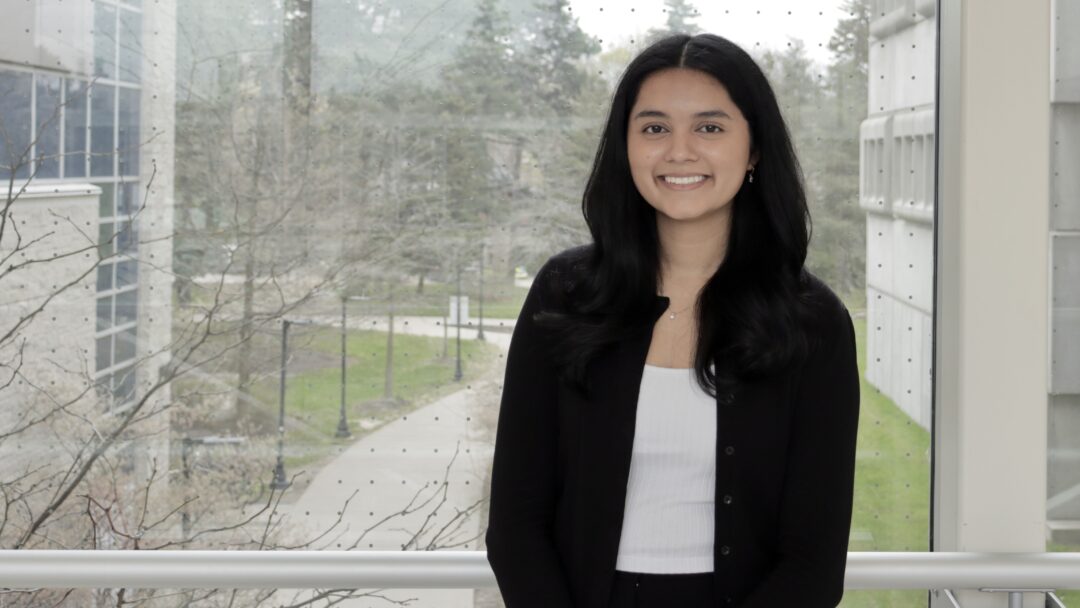
Ayushka Tiwary did more than deliver an award-winning talk at the annual Life Sciences Interdisciplinary Research Symposium – she used her 10-minute presentation to advocate for students facing food insecurity.
Ayushka had spent the year exploring the issue with assistant professor Ana Tomljenovic-Berube (“Dr. T-B”). Ana said she was immediately all-in when Ayushka proposed the topic for her fourth-year thesis project. “The sharp rise in food prices has impacted everyone but students are a particularly vulnerable group in our McMaster community. I had many thought-provoking and meaningful discussions with Ayushka about how to address food security on campus and who to involve in the project.”
More than half of the students surveyed by Ayushka said they were worried about having enough food to eat, ate only a few kinds of foods, regularly skipped meals and ate less than they thought they should. Cost was identified as a barrier to accessing food by 71 per cent of the students.
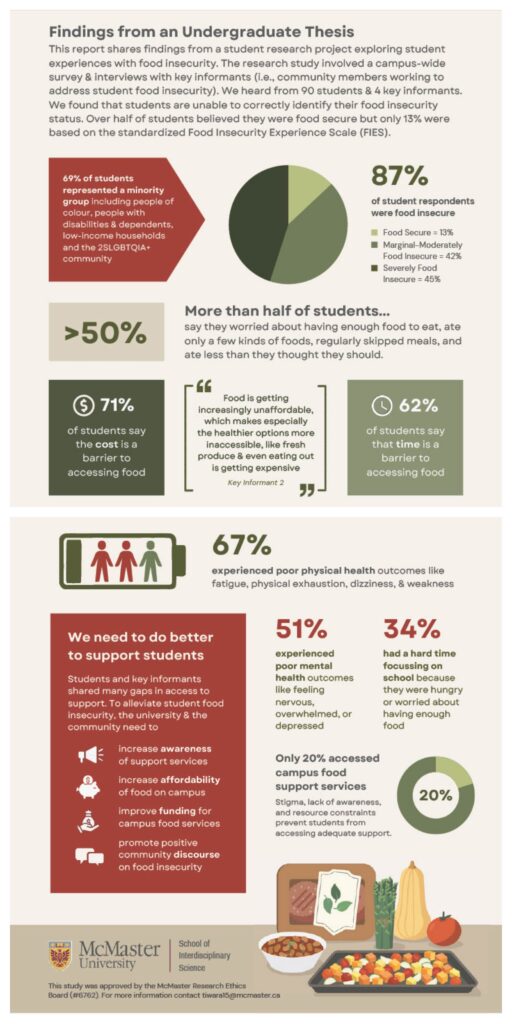
What Ayushka found at McMaster was in line with Canadian averages. Meal Exchange, a nationally recognized charity, released a National Student Food Insecurity Report in 2021. According to that report, 60.4 per cent of students at postsecondary institutions in Canada couldn’t afford to eat balanced or nutritious meals, 55 per cent relied on low-cost meals to avoid running out of money and 32.4 per cent skipped meals because they didn’t have enough money. Rates of food insecurity were highest among students who were relying on bank loans to pay for school.
“Surprisingly, Dr. T-B and I found a big discrepancy between students’ actual and self-reported food insecurity status,” says Ayushka. Most students responding to the survey either didn’t know they were food insecure or didn’t want to identify that they lacked access to an adequate and reliable supply of safe, nutritious foods.
Why the gap and the reluctance to self-identify as food insecure? “Some of the leaders at organizations in our community suggest food insecurity is so stigmatized that students are often isolated and unaware of the severity of their food insecurity experiences and how to get help.”
Ayushka says it’s time to put to rest the prevailing and damaging “struggling student surviving on ramen noodles” narrative that downplays and normalizes food insecurity. “People from outside the student community believe that because students can afford to pay for school, they can afford food too and kind of lose their empathy for students who are seriously struggling with food insecurity. They fail to see that students prioritize school over food, over sleep, over their health and well-being.”
Food insecurity is a complex issue but Ayushka says it’s a solvable problem – if there’s a will, there’s a way. She’s hopeful that cross-collaboration by the university and community organizations can address food insecurity on campus. She’s working on a stakeholder report that she hopes will spark more positive and open discourse on campus. And she believes everyone – students, faculty and staff – can get more involved with their time and money. “When I spoke to the community members at the Food Collective Centre, I was disheartened to hear that their hours of operation are so narrow because they lack volunteers. At the McMaster Community Fridge, their weekly restock completely runs out in a day because demand exceeds their operational capacity.”
Ayushka says increased involvement will drive more awareness, establishing food insecurity as a priority to be addressed. “More importantly, we strengthen our community and facilitate that open discourse that we need to reduce the stigma.”
Ayushka had put everything she had into the project and felt the pressure to present at the front of the room and deliver a clear call to action. “I had worked on this really meaningful project and now I got to share it with everyone and highlight the urgency of acting on my research findings.”
On the way to the lectern, Ayushka spotted Ana and assistant professor Katie Moisse. Working on Katie’s science communication projects had inspired Ayushka to get involved in journalism – she wrote for the student-run Silhouette and became the opinions editor. She led a team of staff writers and published stories that explored health disparities and social issues through a focus on equity and diversity reporting.
“I was so anxious before my presentation. But when I saw Dr. T-B and Dr. Moisse smiling from the audience, I knew everything would be okay – and it was.” Ayushka would receive one of the symposium’s best oral presentation awards.
Ayushka says she owes a lot of her learning and growth to Ana, Katie and Jen Pearson, a sessional instructor, community liaison and outreach coordinator for equity deserving groups. “They helped me discover my passions and quite frankly, shaped my career trajectory. I’m so immensely grateful for all their support throughout my time at Mac and for making learning so exciting.”
Ana says it was an absolute honour working with Ayushka during the past year as her research supervisor. “Ayushka is a brilliant example of how our Life Sciences students aim to think bigger.” Ana says students like Ayushka apply their disciplinary knowledge of science towards tackling real-world problems by considering the societal factors that contribute to health and wellness. “Food insecurity is a local, national, and international problem. We need passionate people like Ayushka to drive these conversations towards change.”
In the fall, Ayushka will be a graduate student in the Master of Science in Public Health program at Johns Hopkins University. She hopes to be a leader in public health one day, addressing health disparities and driving positive change. Graduate studies at the Bloomberg School of Public Health is a step in that direction, says Ayushka. And she’ll be making that step by drawing on what she experienced and learned at McMaster about research, community engagement, knowledge translation and journalism.
Grads to watch, StudentsRelated News
News Listing
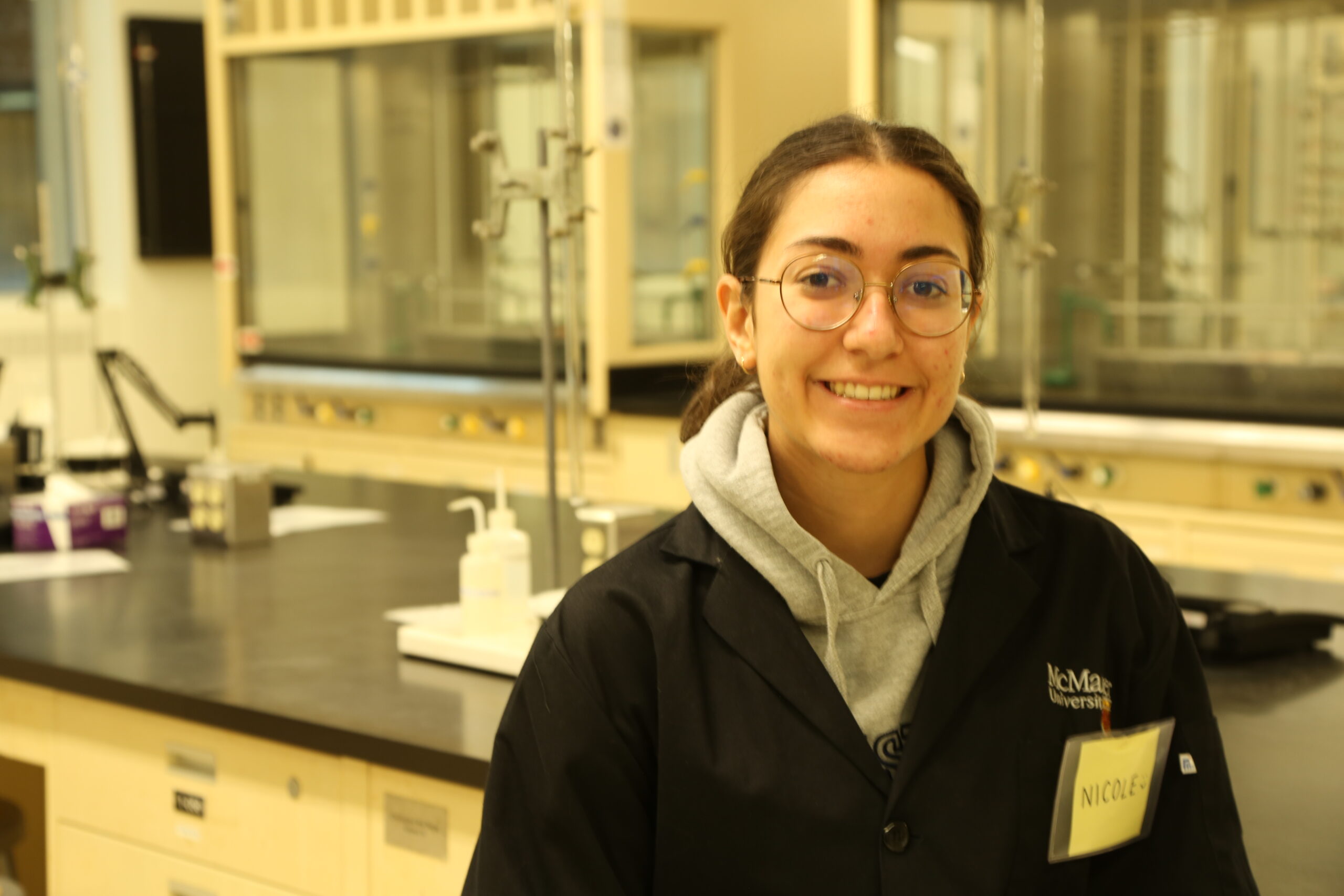
A research co-op was the payoff for undergrad who constantly put up her hand in class
Co-op, Students
2 days ago
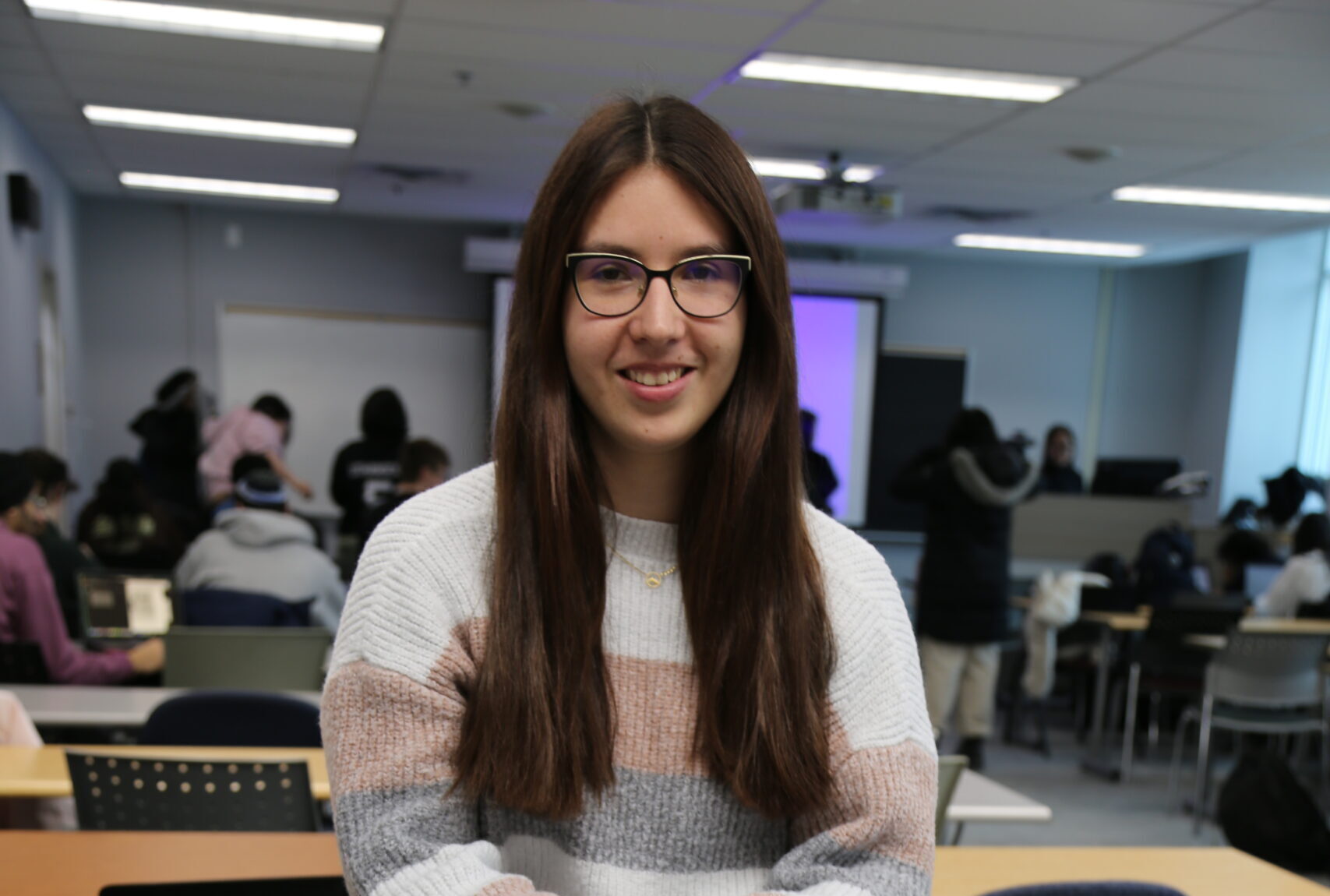
Life Sciences student launches McMaster Teaching Assistant Volunteer program for Hamilton schools
Outreach, Students
February 4, 2025
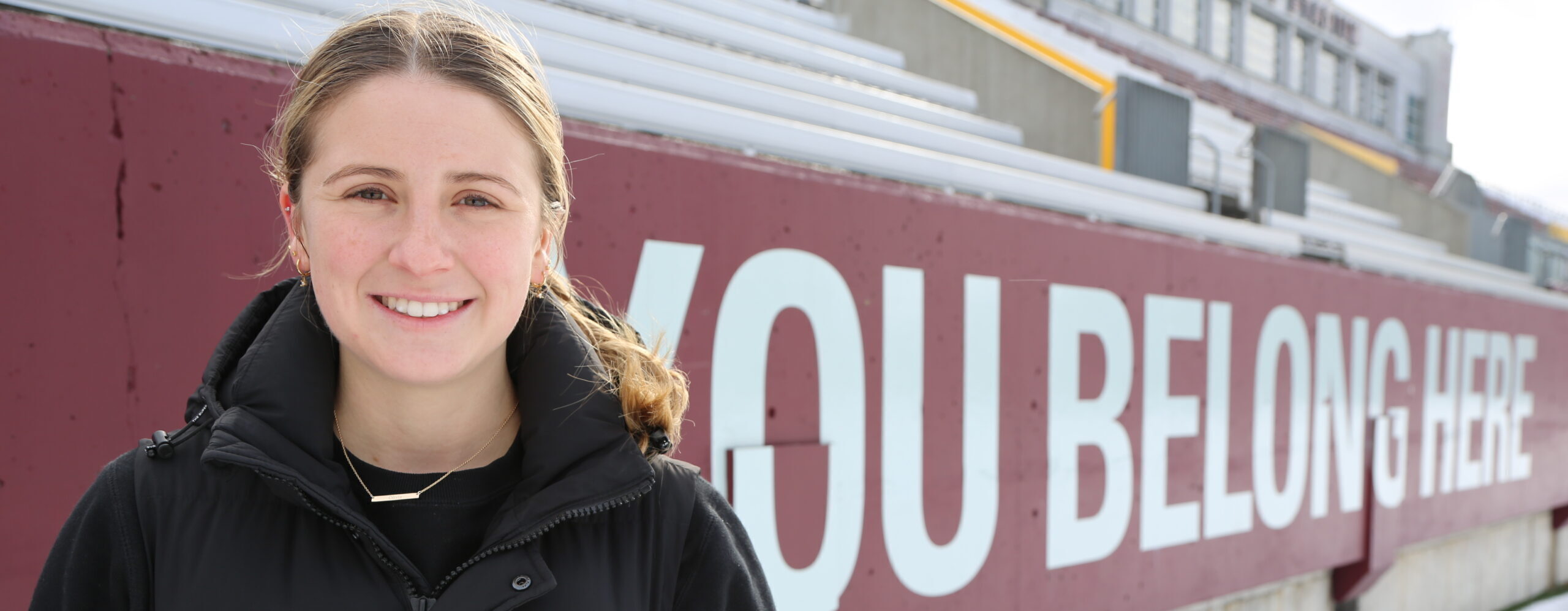
A remarkable four-year run on and off the field for kinesiology student
Outreach, Students
February 3, 2025
